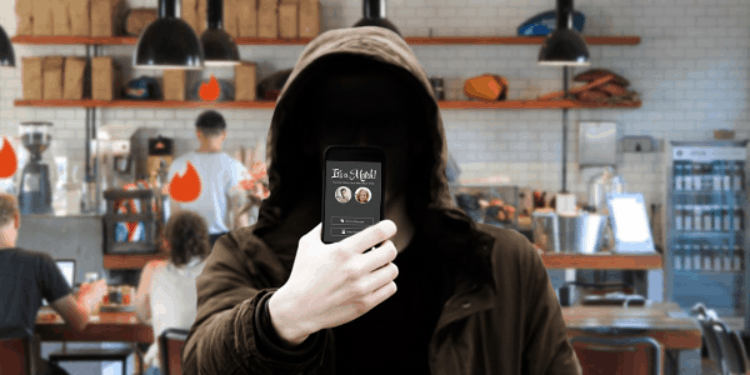
In short, the popular dating app turned out to be rather limited when it comes to implementing proper encryption. Checkmarx, a Tel Aviv app security firm, found out that the profile section lacks even the most basic HTTPS protection, meaning that a third party using the same Wi-Fi network could easily access the same images as you. The other areas of the service that are defended by encryption aren’t 100% secure either, and Checkmarx managed to spy on other people’s swipe history after exploiting particular security flaws.
Tinder is watching you
A leaked list of left swipes might not sound like the end of the world, but a service that handles a book’s worth of personal information about you shouldn’t have such fundamental security flaws. Don’t believe us just how big a problem this is? Tinder can provide a copy of all the data gathered from your profile; you’ll be shocked just how much this innocent looking app knows about you.
For instance, a Tinder-loving journalist received 800 pages of documentation, detailing four years of her past matchmaking. Facebook friends, sexual orientation, the number of matches, education and of course all the “hi”s, flirty messages and intimate secrets you carelessly shared are all present and cataloged by the app. Forget Big Brother, it’s Tinder that knows everything. And we don’t need to explain what would happen if malicious individuals managed to get their hands on your data…
Daters don’t feel data
The fear of having your dating account hacked is real, just ask all those poor Ashley Madison users. 2016 was an especially rough year for daters: first, 1.1 million profiles were leaked from Beautiful People, a service exclusively for good-looking singles; then there was Muslim Match, where 150,000 users suffered a privacy breach; and last but not least is AdultFriendFinder, where over 400 million accounts were hacked.

Dubious individuals who collect such data will easily skip through the large walls of text to get to the juicy stuff. They are masters of profiling, and will use the knowledge to shame or blackmail you. The problem is that users make their job far too easy. Luke Stark, a digital technology sociologist, explains that people don’t “feel” data. We are unaware of the weight of our precious private information – such as education, place of work, income, real name, and so on – and will casually drop them in the middle of a chat session in hopes of impressing the other person or getting to know one another. And even though we quickly forget about whatever tidbit of info we might share, Tinder still stores every detail in its shaky safe.
Avoiding privacy leaks on Tinder
So what can be done to prevent your personal information from being stolen? Well, make sure that the app is never used on an unprotected Wi-Fi network. You should also increase the privacy settings on your Facebook profile or, even better, create an alternative one just for Tinder. On the same note, restrict yourself from sharing sensitive information with someone you never met in person. The last – and possibly the safest – option is to make use of a VPN. It could enhance your matchmaking experience, especially if you are an avid traveler.





